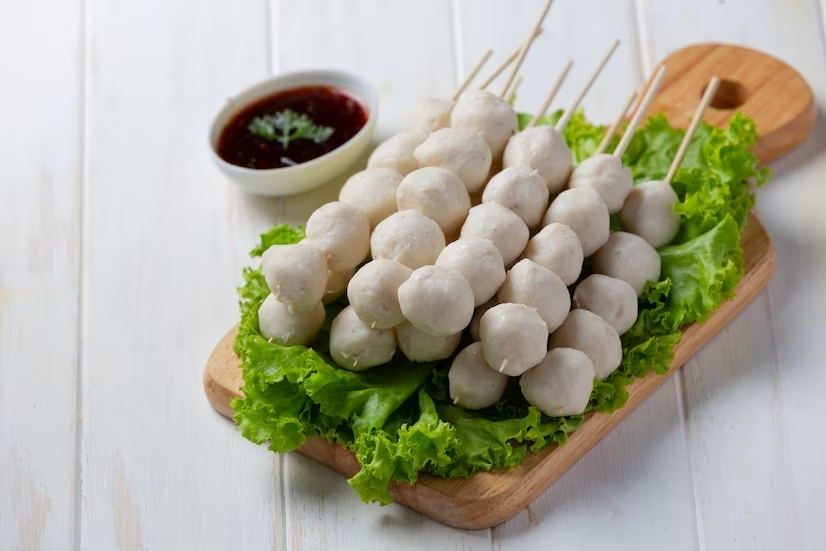Meatball is a small, round or oval-shaped meat product made by blending ground meat with other ingredients such as bread crumbs, eggs, herbs, and spices, and then rolling the mixture into balls. Meatballs can be cooked in various ways, including frying, baking, and simmering in sauce.
Modified tapioca starch can act as an important ingredient in meatball production due to its water binding power, which helps to retain moisture and prevent texture collapse after frying. It also enhances binding properties and yields improvement, resulting in a firm texture. The elastic texture and freeze-thaw stability of modified tapioca starch can also be beneficial in the production of frozen meatballs.
The benefits of modified tapioca starch for meatball production include:
- Water binding power: Tapioca starch has a high water binding capacity, which helps in retaining the moisture in the meatball during cooking and storage.
- Juiciness: The water holding capacity of tapioca starch helps in retaining the juiciness of the meatball.
- Prevent texture collapse after frying: Tapioca starch can prevent the texture of the meatball from collapsing during frying.
- Enhance binding properties: The binding properties of the meatball can be enhanced with the addition of modified tapioca starch, which helps in holding the meatball together.
- Firm texture: Tapioca starch can contribute to the firm texture of the meatball.
- Yield improvement: Modified tapioca starch can improve the yield of the meatball during production.
- Elastic texture: Tapioca starch can contribute to an elastic texture of the meatball.
- Freeze-thaw stability: Modified tapioca starch can improve the freeze-thaw stability of the meatball, making it more suitable for storage and transportation.

